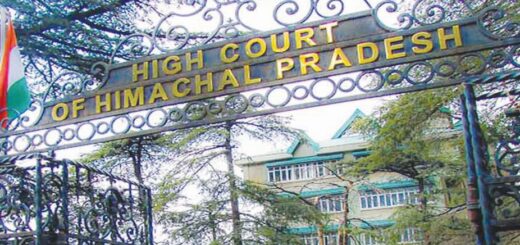The Supreme Court requires a full investigation into the character, background, nationality, and documents of candidates chosen for government jobs within six months of their appointment.

The Supreme Court has instructed State police officials to finish the investigation into the character, background, nationality, and documents of candidates chosen for Government jobs within six months of their hiring. The Court supported the appeal by reinstating the decision of the West Bengal State Administrative Tribunal and overturned the Calcutta High Court’s ruling, which had confirmed the termination of the Appellant, an Ophthalmic Assistant in West Bengal’s Health Department. The Bench explained that candidates’ appointments will only be made official after their credentials are verified to prevent any issues. Justices J.K. Maheshwari and R. Mahadevan emphasized that the situation requires police officials in all States to complete the inquiry and submit a report on the candidates’ character, background, nationality, and the authenticity of their documents within the time frame set by law, or no later than six months after their appointment. It is clear that only after verifying the candidates’ credentials will their appointments be finalized to avoid further complications.
Advocate Raj Kumar Gupta represented the Appellant, while Senior Advocate Biswajit Deb represented the Respondents. The Appellant moved to India from East Pakistan (now Bangladesh) with his father in 1969 and was hired as an Ophthalmic Assistant by the Director of Health Services in West Bengal in 1985, based on positive medical and police verification reports. After 25 years of clean service, a police verification report deemed him unfit for employment, resulting in his termination. The Appellant contested this decision at the Tribunal, which ruled in his favor. However, the High Court overturned the Tribunal’s decision and upheld the termination, leading to the current appeal.
The Supreme Court noted that the 25-year delay in presenting the police verification report was “arbitrary, illegal, and against the principles of natural justice and it cannot be sustained.” It highlighted that the Appellant was denied his pension benefits despite 26 years of flawless service. “Interestingly, none of the documents, including the show cause notice, explained why the appellant was labeled as ‘unsuitable’ for the position of Ophthalmic Assistant. Additionally, the alleged police verification report was never provided to the appellant, preventing him from defending himself with supporting evidence. Consequently, he was terminated from his job,” the Court stated.
The Court observed that the Appellant did not receive a copy of the police verification report or a chance to respond to its conclusions. The termination order also did not provide specific reasons for considering him unsuitable, which went against the principles of natural justice. As a result, the Court stated, “The High Court mistakenly accepted the writ petition from the State and overturned the Tribunal’s order, claiming that the authorities acted in line with natural justice by issuing a show cause notice and allowing the Appellant to respond. Therefore, we decide to overturn the High Court’s order and reinstate the Tribunal’s decision.” Thus, the Supreme Court approved the Appeal.
Cause Title: Basudev Dutta v. State of West Bengal & Ors. (Neutral Citation: 2024 INSC 940)
Appearance:
Appellant: Advocates Raj Kumar Gupta and Mayank Agrahari; AOR Shekhar Kumar
Respondents: Senior Advocate Biswajit Deb; Advocate Shwetank Singh; AOR Anando Mukherjee









